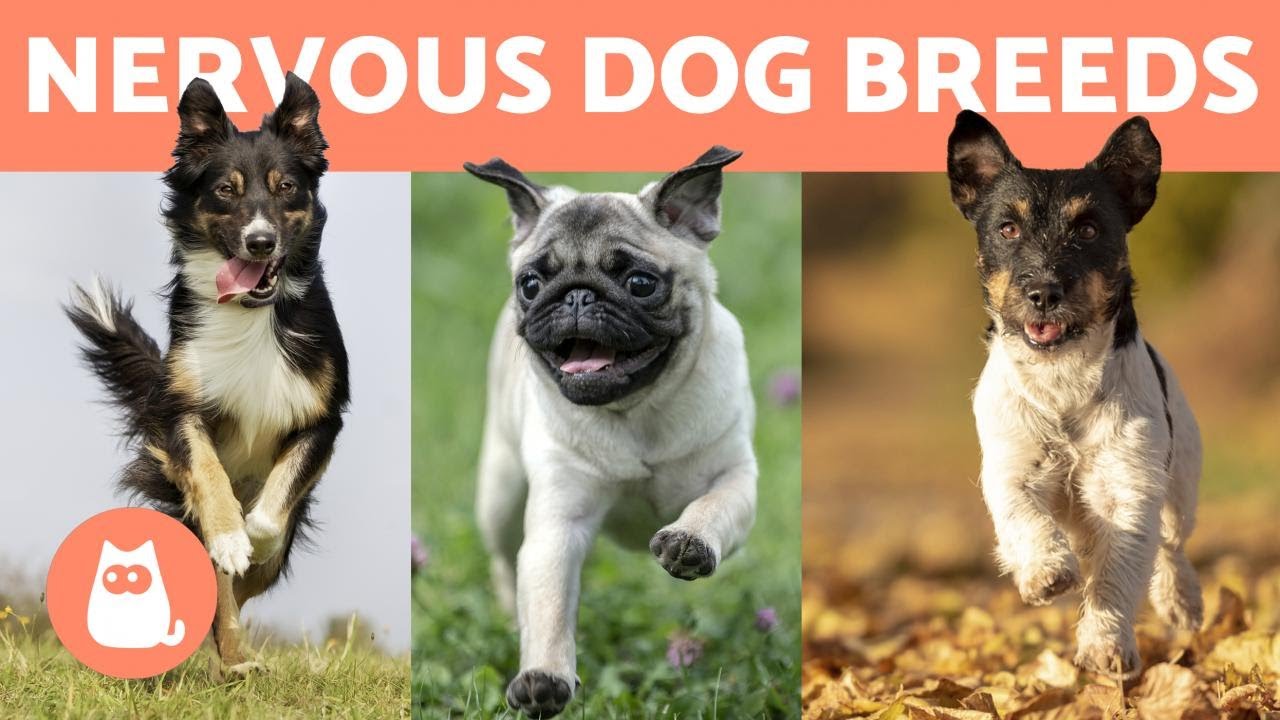Introduction:
Have you ever noticed your furry friend trembling during thunderstorms or cowering in fear when meeting new people? Dogs, like humans, can experience anxiety, and certain breeds are more predisposed to this than others. Understanding which dog breeds have higher anxiety levels is crucial for providing them with the care and support they need. In this article, we’ll delve into the world of anxious dog breeds, explore why some breeds are more prone to anxiety, and discuss effective strategies to help them lead happier and more balanced lives.
What Causes Anxiety in Dogs?
Understanding the root causes of anxiety in dogs is the first step towards helping them cope better. Anxiety in dogs can stem from various factors, including genetics, past experiences, lack of socialization, changes in environment, and medical conditions. Some breeds may have a genetic predisposition to anxiety, making them more susceptible to stress triggers.
Identifying Breeds Prone to Anxiety
While all dogs can experience anxiety to some degree, certain breeds are known for being more prone to this condition. Breeds such as the Chihuahua, Yorkshire Terrier, Bichon Frise, and Cavalier King Charles Spaniel are among those commonly associated with high anxiety levels. These breeds tend to be more sensitive and easily stressed, requiring special attention and care.
Chihuahua: The Tiny Anxious Companion
Chihuahuas may be small in size, but their anxiety levels can be big. These pint-sized pups are known for their bold personalities, but they can also be prone to nervousness and fearfulness, especially in unfamiliar situations or around strangers. Proper socialization and gentle training techniques are essential for helping Chihuahuas feel more confident and secure.
Yorkshire Terrier: The Fearful Terrier
Despite their brave exterior, Yorkshire Terriers are often plagued by anxiety. These feisty little terriers crave companionship and can become overly attached to their owners, leading to separation anxiety when left alone. Providing plenty of mental stimulation, consistent routines, and positive reinforcement can help ease their worries and prevent behavioral issues.
Bichon Frise: The Affectionate Worrier
Bichon Frises are beloved for their cheerful demeanor and affectionate nature, but beneath their fluffy coats lies a tendency towards anxiety. These sensitive souls thrive on human companionship and can become distressed when left alone for long periods. Creating a safe and comforting environment, along with regular exercise and mental stimulation, can help alleviate their anxiety symptoms.
Cavalier King Charles Spaniel: The Gentle Anxious Soul
With their soulful eyes and gentle disposition, Cavalier King Charles Spaniels steal the hearts of many. However, these sweet-natured dogs are prone to separation anxiety and may become distressed when separated from their owners. Building their confidence through positive reinforcement training and ensuring a consistent daily routine can help soothe their anxious minds.
Strategies for Managing Anxiety in Dogs
Regardless of breed, there are several effective strategies for managing anxiety in dogs. Providing a safe and predictable environment, establishing a regular exercise routine, offering mental stimulation through interactive toys and games, and practicing relaxation techniques such as massage and aromatherapy can all help reduce stress and promote emotional well-being.
The Importance of Professional Support
In severe cases of anxiety, seeking professional help from a veterinarian or certified dog behaviorist may be necessary. These experts can assess your dog’s specific needs and develop a customized treatment plan tailored to their individual temperament and triggers. Medication, behavioral therapy, and desensitization techniques may be recommended to help your anxious pup overcome their fears.
Conclusion:
Understanding the unique challenges faced by dog breeds with high anxiety is essential for providing them with the care and support they need to thrive. By recognizing the signs of anxiety, implementing effective management strategies, and seeking professional guidance when necessary, we can help our beloved canine companions lead happier, healthier lives free from excessive worry and fear.
FAQs:
1. How can I tell if my dog is anxious? Signs of anxiety in dogs may include excessive barking, panting, trembling, pacing, drooling, destructive behavior, and withdrawal. Pay attention to changes in your dog’s behavior and body language, and consult with a veterinarian if you have concerns.
2. Can anxiety in dogs be cured? While anxiety in dogs may not be completely cured, it can be managed effectively with the right approach. By addressing the underlying causes of anxiety and implementing appropriate strategies, many dogs can learn to cope better with stress and lead fulfilling lives.
3. Are there any natural remedies for dog anxiety? Natural remedies such as lavender aromatherapy, chamomile supplements, and CBD oil may help alleviate mild anxiety symptoms in some dogs. However, it’s essential to consult with a veterinarian before trying any new treatments to ensure they are safe and appropriate for your pet.
4. How can I help my anxious dog during thunderstorms? During thunderstorms, create a safe and comforting space for your dog indoors, away from windows and loud noises. Provide distractions such as toys or treats, and consider using calming aids such as a weighted blanket or anxiety vest to help your dog feel more secure.
5. Is it possible for my dog to develop anxiety later in life? Yes, dogs can develop anxiety at any age, although certain life events such as changes in routine, loss of a loved one, or traumatic experiences may trigger anxiety symptoms. It’s essential to monitor your dog’s behavior regularly and seek professional help if you notice any signs of distress or anxiety.
